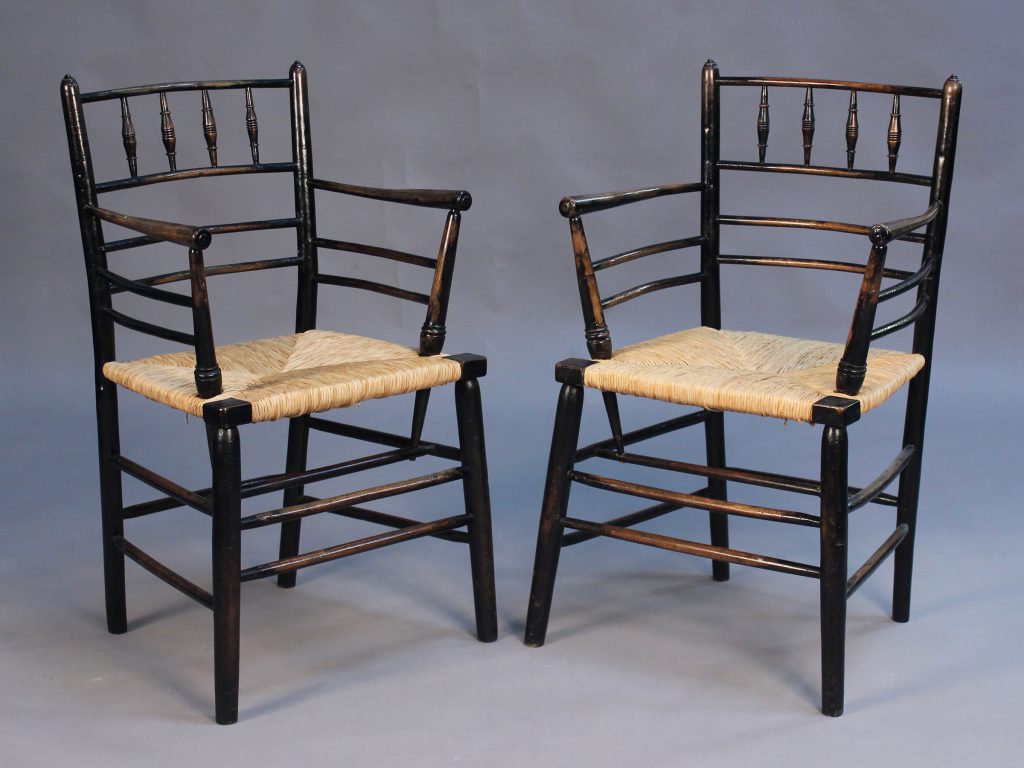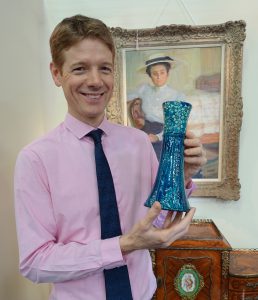
Sussex has many links to the Arts & Crafts Movement including the famous Sussex chair.
The Arts and Crafts Movement was named after the Arts and Crafts Exhibition of 1882 but its origins date back to the mid-1850s and are commonly attributed to the architect, Philip Webb, the writer, John Ruskin, and William Morris who famously said “Have nothing in your house that you do not know to be useful, or believe to be beautiful.”
The movement was deeply informed by the romantic socialism of John Ruskin and William Morris. John Ruskin’s writings inspired the principles of the movement. In response to the often harsh realities of 19th century industrialised work, he advocated a return to an age of ‘free’ craftsmen. The movement stood for traditional craftsmanship and simple forms.

As I admire a set of Sussex chairs Toovey’s Arts and Crafts specialist, William Rowsell, explains “These chairs were named after a country chair found in Sussex. Philip Webb designed this model for Morris & Co but other firms like Liberty & Co and Heals also produced their own versions.” I comment on how they bear such a similarity to late 18th and early 19th century chairs in the English vernacular tradition and William agrees.
William tells me “William Morris and his wife Jane had Sussex chairs in their first home, Red House in Bexley Heath in the 1860s, and at their later London home, Kelmscott House in Hammersmith.”
Toovey’s next specialist Arts and Crafts auction will be held on Friday 7th September and a set of eight Art and Crafts Sussex chairs have already been entered. As I sit in one of the armchairs it holds me perfectly. The influential writer and designer, Robert Edis was right when he described these chairs as ‘excellent, comfortable and artistic’. They appealed to artists too like the Pre-Raphaelite, Edward Burne-Jones who had Sussex armchairs in his studio.
William Rowsell describes how Morris & Co introduced the Sussex range in about 1864 “The armchairs and single chairs reflected the restrained design. On the strength of their success they introduced corner chairs, children’s chairs and settles. People loved the fact that they were made from English stained Ash.”
In the 1912 Liberty catalogue a single armchair was priced at 9s 9d (49p) but today it would realise hundreds of pounds, testament to the design’s enduring appeal.
William Rowsell is passionate about his subject and is often found in the company of collectors offering advice to buyers and sellers. Entries for Toovey’s next specialist auction of Arts and Crafts Furniture and Works of Art are still being accepted. William can be contacted by telephoning 01903 891955.
By Rupert Toovey, a senior director of Toovey’s, the leading fine art auction house in West Sussex, based on the A24 at Washington. Originally published in the West Sussex Gazette.